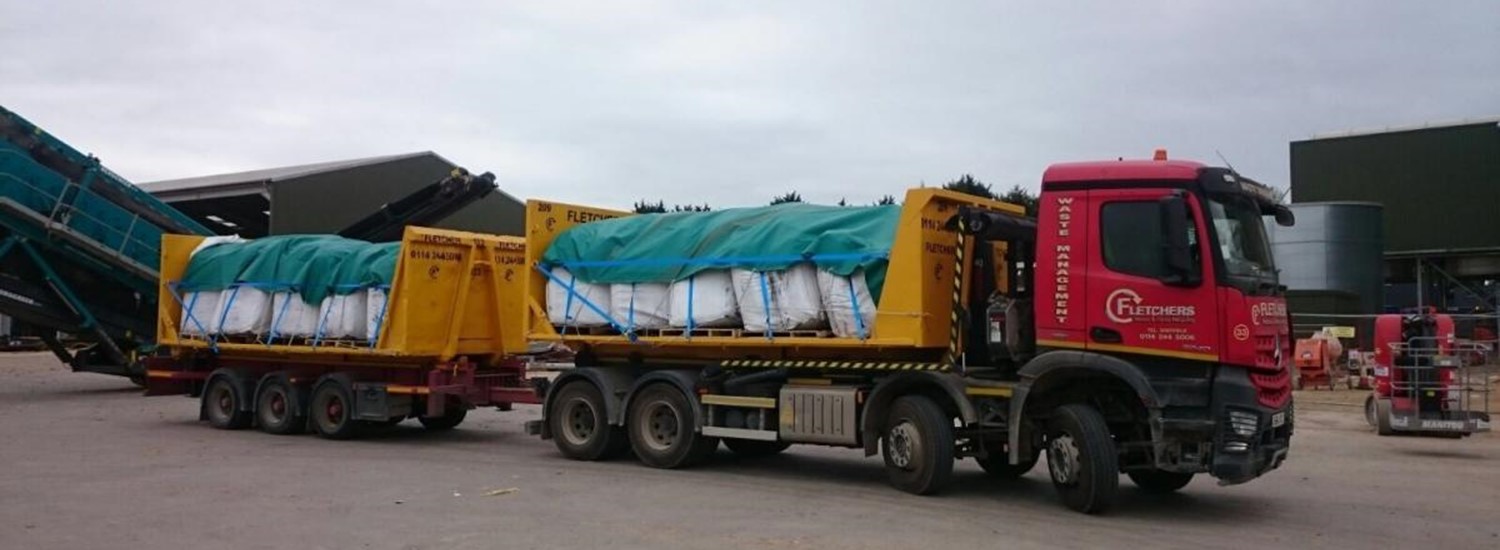Bin and gone – the secret life of Sheffield’s litter

It remains an alarming fact that every year Sheffielders discard of 6,900 tonnes of rubbish on the city’s streets and in roadside bins.
That’s enough for a 22 metre rubbish mountain covering an area from Pinstone Street right across the Peace Gardens.
But with the help of Sheffield firm Fletchers Waste Management, being binned is rarely the end of the story for Sheffield’s street waste. It’s all either recycled as raw materials for new products or used to generate electricity.
With 2,551 waste bins and hundreds of miles of roadway, the huge job of keeping Sheffield tidy falls to Streets Ahead, the City Council’s highways maintenance programme, ably supported by the armies of resolute volunteer litter picking groups which operate across the city.
But in these environmentally conscious times, what actually happens to all that waste once it drops into a bin or bin bag?
“Few people give a second thought to where their litter goes once it leaves their hands,” said street cleansing operations manager, Sara Bradley.
“Fortunately, for people who put it in the bin they can be sure it gets handled responsibly, ensuring its impact on the environment is limited.”
The city’s street waste is sorted for recycling in Darnall by Sheffield waste specialist, Fletchers.
Fletchers’ eco-friendly approach prioritises recycling as an alternative to landfill meaning that, once hazardous and food waste is removed, around a third of it becomes raw materials for new products.
Where recycling is not an option, biomass and energy from waste processes recover enough electricity from what’s left to power the equivalent of more than 380 homes for a year.
Fletchers MD Warren Steele said: “In the past, most businesses had no choice but to send their waste to landfill sites, but thanks to huge progressions in recycling technology Fletchers are now able to recycle up to 96% of business waste.
“It’s a challenge meeting government recycling and landfill reduction targets and many people are unaware of the investment and intensity of the waste management industry.”
Here’s what happens to Sheffield street litter when it reaches Fletchers site in Darnall:
First of all, any potentially hazardous waste is removed for appropriate disposal.
Next, Sheffield’s street litter is sieved by machine and picked through by hand to look for recyclable items such as plastic, paper, cardboard, wood, hardcore (rubble/construction material) and metals.
Wood is shredded at the Fletchers processing facility to a specification suitable for biomass energy recovery. Biomass is used to heat water, creating steam to generate power.
Plastics are washed and shredded and granulated into grades which can be remolded into products like bottles, toys and even park benches.
Rocks and stones are graded by size and quality and then washed and crushed to specification for reintroduction into the construction industry.
Recovered paper and cardboard is baled and graded based on quality before being sent to UK paper mills where it is pulped and recovered as recycled paper for further use.
Metals and glass are sorted and repurposed for re-molding into new products
Whatever’s left is shredded and sent to UK and European Energy Recovery facilities where it becomes fuel for energy generation. Because waste carries a calorific value, it burns easily and the heat it generates drives turbines which create electricity for the national grid.
As part of the council’s Clean Sheffield campaign, individuals and businesses alike are being encouraged to take pride in their community and not drop litter.
Whether it’s as simple as picking up a piece of litter on your walk to the local shops, raising awareness of litter prevention or organising a litter pick in your local area, your support helps make Sheffield a cleaner environment for everyone to enjoy.
The council’s enforcement team has issued 547 notices across the city in the last 12 months for people dropping litter.
Cabinet assistant for environment and street scene at Sheffield City council, Councillor Karen McGowan said:
“It’s important that people are in the know when it comes to their litter. It’s easy to become ignorant to where our waste ends up but we all need to be more conscious of how and where we dispose of rubbish.
“Waste management has developed enormously in the past few years, particularly in terms of recycling, and it’s great to see that Streets Ahead is contributing to our wider environmental aims when it comes to waste disposal.
“Litter continues to be a top priority in Sheffield and we are taking steps to tackle it head on by taking action against those who litter, applying strict street cleansing and bin emptying timescales city-wide and supporting community litter-picking groups who are helping to make a real difference to litter levels on and around our streets.”
For more information on Clean Sheffield visit: www.sheffield.gov.uk/cleansheffield
Anyone who wants to report a litter problem can call 0114 2734567 or visit https://www.sheffield.gov.uk/home/report